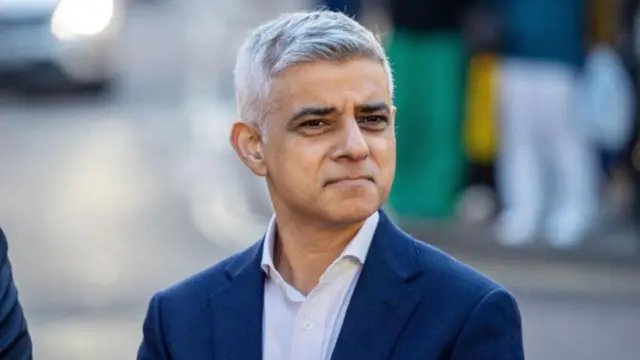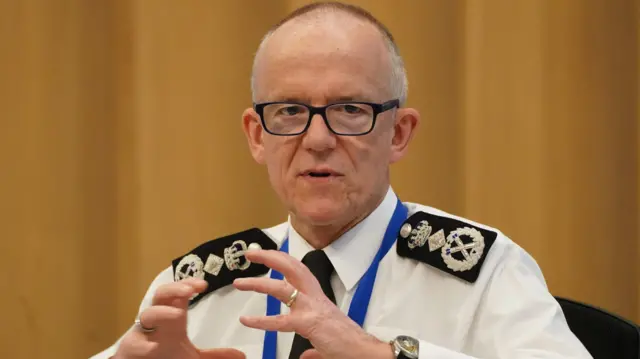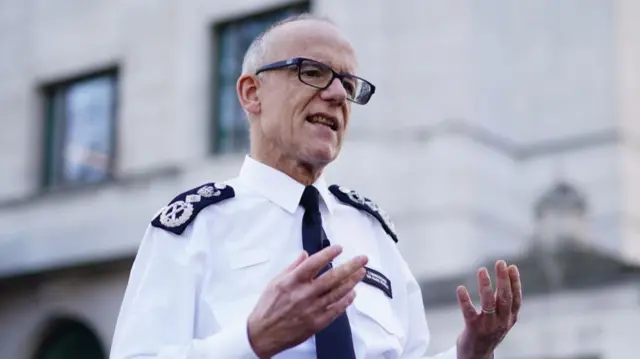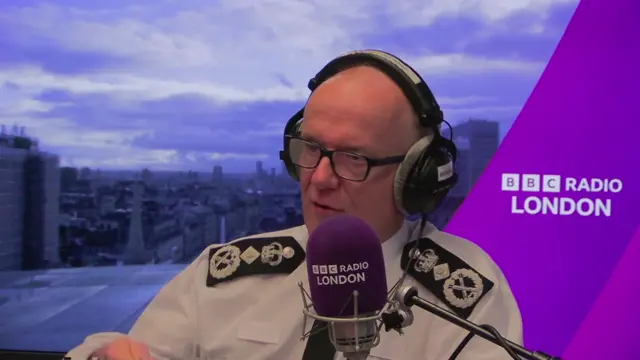We're ending our coverage herepublished at 14:18 BST 6 April 2023
Dulcie Lee
Live reporter
The scale of the challenge for the head of the Metropolitan Police Mark Rowley was laid bare in his interview a few hours ago.
Trust, public safety and diversity within the force were key themes. We're going to bring our live coverage to a close here, but there's still plenty more for you on this story:
- Catch up with the key points in our main story here
- Read more about public distrust in the Met in our polling story here
- And hear about how London's communities feel here
Today's page was edited Emma Owen, Alex Therrien and myself.
Our writers were Malu Cursino, Sam Hancock, Harry Low, Yasmin Rufo, Tim Stokes, Emily McGarvey and Alys Davies.
Thanks for joining us.






